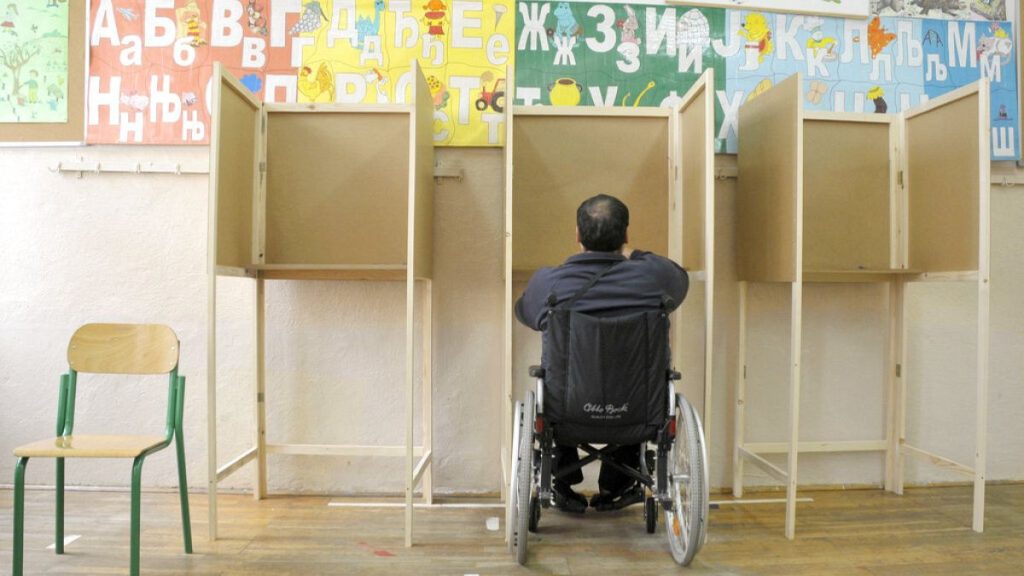The latest report by the European Agency for Fundamental Rights (FRA) highlights the ongoing challenges faced by voters with disabilities in the European Union. Despite progress made since the 2019 EU elections, member states still fall short of ensuring equal participation for all voters. Fifteen countries including Bulgaria, Croatia, and Spain have been identified as lacking in accessibility measures for people with disabilities, ranging from inaccessible voting venues to restrictions on voting for those under legal guardianship. The Convention on the Rights of Persons with Disabilities, ratified by all EU member states, calls for elections to be designed and conducted with consideration for different types of disabilities, but this standard is not consistently met.
In response to the barriers faced by voters with disabilities, the FRA report presents a range of recommended accessibility measures. Countries like Belgium, Finland, and Poland have already begun implementing measures such as providing transport for voters and introducing audio description technology and Braille ballots for those with visual disabilities. However, challenges at the outset of the electoral process still hinder some individuals from understanding basic information about elections, whether on political group websites or government portals. Only three member states – Austria, Finland, and France – have public websites that meet the new accessibility standards set out by a European Commission directive in 2021, indicating the need for further progress in this area.
The report emphasizes the importance of addressing accessibility issues at both the national and European levels, calling for new laws that do not treat people with disabilities as second-class citizens. According to the European Commission, approximately 87 million people in the EU have some form of disability, and nearly 27% of the population over 16 years old reported limitations on their usual activities due to health issues in 2022. Alejandro Moledo, deputy director at the European Disability Forum, stressed the need for continued efforts to ensure that the voices and opinions of people with disabilities are taken into account in the democratic process. For individuals like Soufiane El Amrani, who has been prevented from voting since being placed under legal guardianship in 2016, the lack of accessibility in the voting process can be frustrating and make them feel excluded from participating in civic life.
The FRA report underscores the importance of implementing accessibility measures to ensure that voters with disabilities can fully participate in the electoral process. Suggestions include providing clear information and communication materials for people with different types of disabilities, as well as improving the accessibility of public sector websites and mobile apps. While some progress has been made in certain countries, more work is needed to overcome the existing barriers and ensure that all individuals have equal opportunities to exercise their right to vote. By addressing these challenges and promoting inclusive policies, EU member states can work towards creating a more accessible and equitable electoral system for voters with disabilities.
Moving forward, continued advocacy and collaboration between stakeholders will be essential in advancing accessibility for voters with disabilities across the EU. By raising awareness of the challenges faced by individuals with disabilities and promoting inclusive practices in the electoral process, governments and organizations can work towards ensuring that all citizens have the opportunity to participate in democratic elections. With a focus on implementing practical measures and legislative changes, EU member states can strive towards greater inclusion and equal participation for voters with disabilities in future elections.













